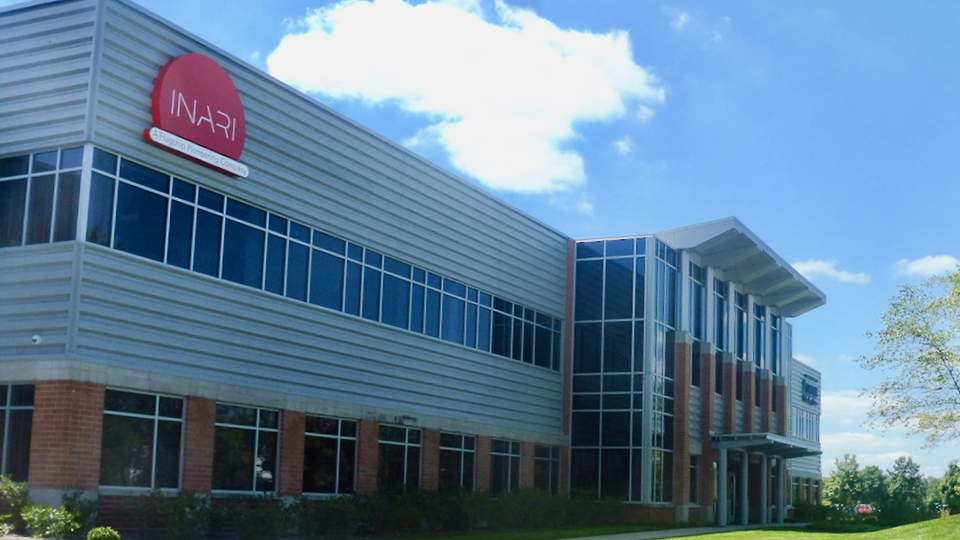Inari raises another $103M for gene-editing technology
Subscriber Benefit
As a subscriber you can listen to articles at work, in the car, or while you work out. Subscribe Now
A Boston-based biotech company with large operations in Indiana has closed on a $103 million funding raise, bringing its cumulative fundraising to more than a half-billion dollars for the eight-year-old company.
Inari Agriculture said the investment signals confidence in its ability to develop higher-yielding seeds that require fewer resources, using AI-powered predictive design and multiplex gene editing.
Yet the company remains snared in a nasty dispute with Indianapolis-based Corteva Agriscience Inc., which has accused Inari of patent infringement on its seeds. A federal court in Delaware will hear oral arguments on March 6 on Inari’s motion to dismiss the case and Corteva’s opposition to dismiss.
The latest round of funding, announced Jan. 30, brings Inari’s total equity raised to more than $575 million.
Inari, which has a major research and development space at the Purdue Research Park in West Lafayette, says it will use the funding for further development of its gene-edited seed technology.
Inari opened its Seed Foundry in West Lafayette in 2018 and has continued its investment in the Tippecanoe County operation, including a $22 million expansion of its existing greenhouse space in June 2021.
The company has developed the SEEDesign platform, which was created to improve increases in crop yield while improving the efficiency of crops’ use of resources such as water and fertilizer.
CEO Ponsi Trivisvavet said the investments “represent further external validation of Inari’s innovative technology.”
Inari was hatched from Cambridge, Massachusetts-based Flagship Pioneering, the same venture capital firm that launched pharmaceutical and biotechnology giant Moderna, which is still based in Cambridge.
Inari told IBJ in 2023 it is using predictive research and gene editing in an effort to reach some key benchmarks: increase the yield in corn, soybeans and wheat by as much as 20%; decrease the water needed to grow corn 40%; and decrease the nitrogen needed for corn growth 40%.
Yet, its dispute with Corteva is turning into a David and Goliath match. Corteva is one of two giant companies that sell roughly 70% of the corn seeds in the United States. Inari is a small, venture funding company that partners with independent seed companies.
In September, Corteva sued Inari, claiming the Massachusetts company had taken Corteva’s patent-protected seeds, made slight genetic modifications, and was preparing to commercialize them under its own name.
The lawsuit alleges that Inari deliberately used a third-party agent to obtain protected Corteva seeds, illegally exported the seeds out of the United States, made slight genetic modifications of the biotech traits and is seeking U.S. patents for those modified traits.
The lawsuit accused Inari of misappropriating from the American Type Culture Collection, a not-for-profit that collects, stores and distributes stand reference microorganisms, cell lines, seeds and other biologic materials for research purposes.
It asks the court to prevent Inari “from continuing its brazen efforts to steal Corteva’s groundbreaking, patent-protected work.”
In response, Inari said the patent deposits are available to the public without restriction. It claims that Corteva authorized the unrestricted availability to the public of those seeds and their transportation in commerce.
“In exchange for the grant of these patents, Corteva assured the public that the deposits would be available to the public without restriction when the patents issued,” Inari said in a court filing. “Corteva now seeks to renege on that promise.”
Last month, Corteva answered Inari’s motion in a court filing. It said that Inari’s core argument—that Inari may “willingly infringe” on Corteva’s intellectual property—had no basis in law or logic. It said Inari’s arguments, if accepted, would “wreak havoc with well-established principles of intellectual property protection.”
“No district court or appellate court has ever adopted this extraordinary proposition,” Corteva wrote in its filing. “This court should not be the first.”
